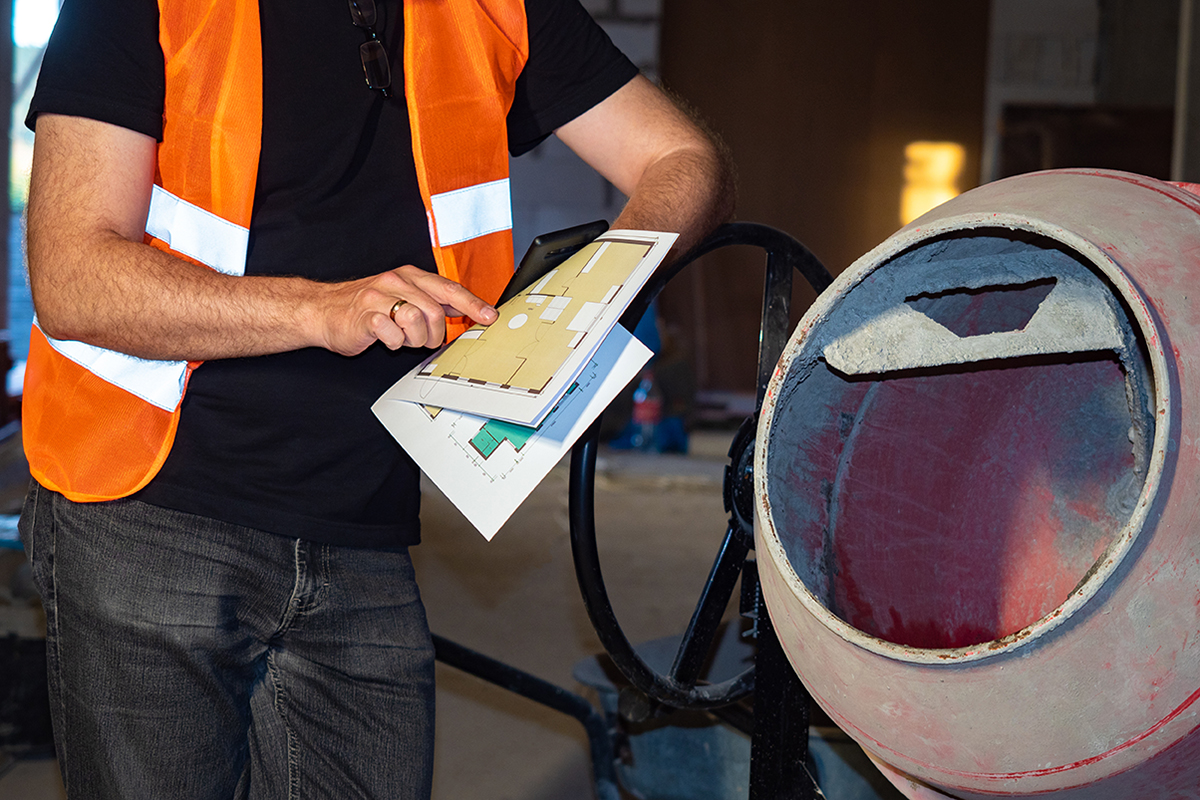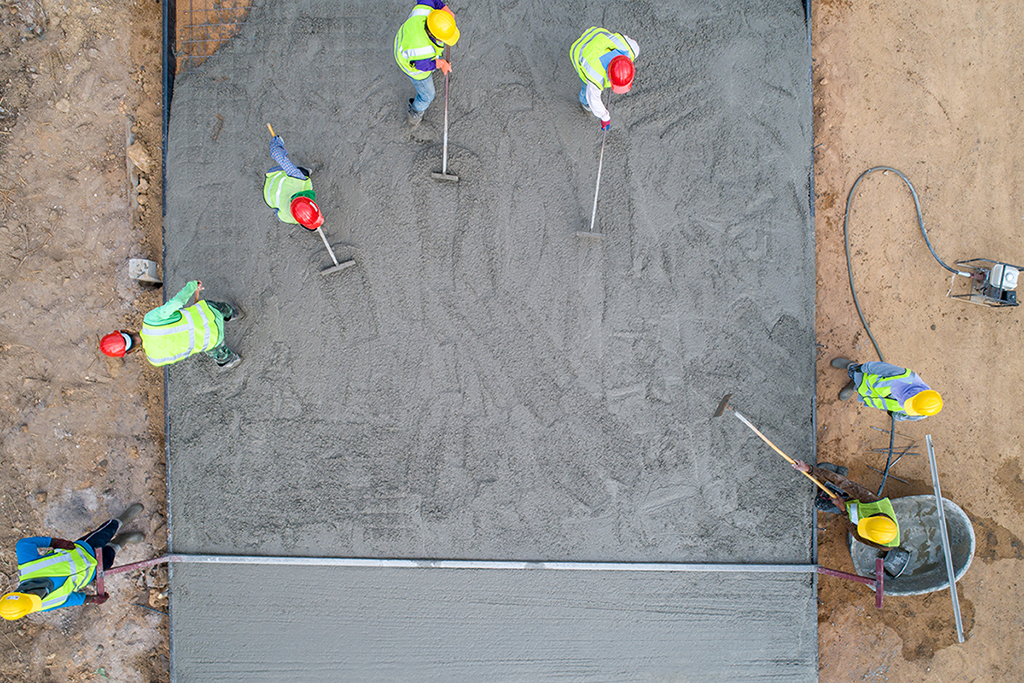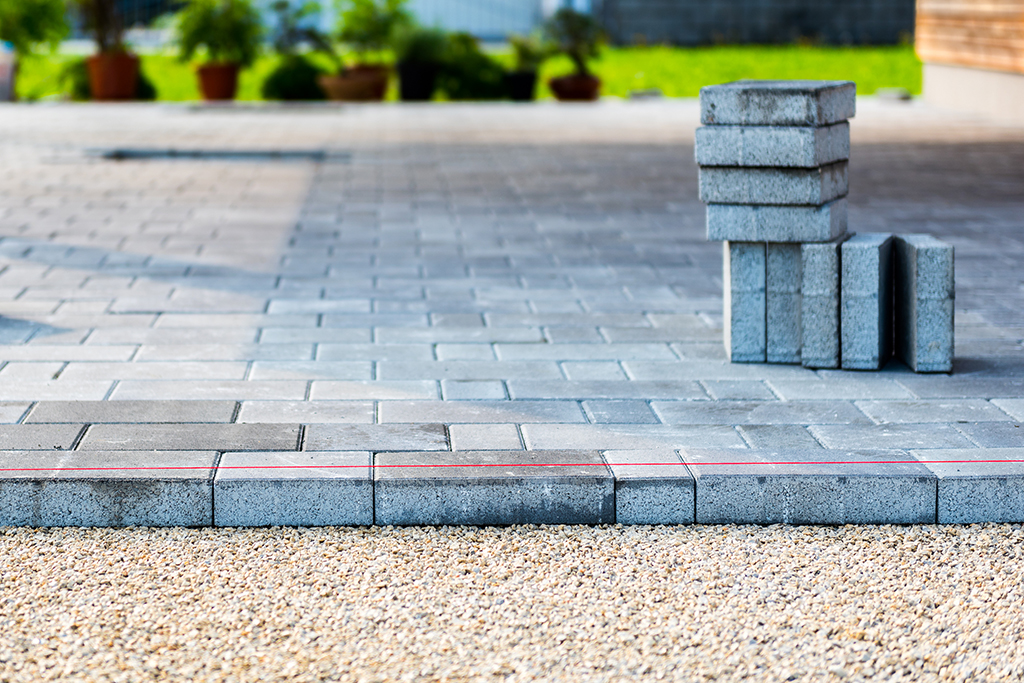How Much Concrete Do You Need for Your Project?

Jun/21/22
Figuring out how much concrete to use for your project can take some time and patience, but it’s important to calculate it correctly so you can ensure that your concrete project turns out the way it should. Read on to learn more about how to determine the amount of concrete you’ll need.
How to Calculate Concrete
The first step in calculating concrete amounts is to measure the space that will be covered. You usually only get one chance for the pour so it’s important to accurately calculate the amount of concrete needed. You’ll need to measure the length, width, and height of the slab, footing, or column. If the area is complex and you need multiple pours it can be helpful to break the project in to smaller pieces and calculate the concrete needed for each individually. Once you have an idea of how much concrete you’ll need for the job, you’ll want to include an additional 10 percent of material to make up for spills and grade variations.
Tips for Estimating
The formula for concrete is length x width x thickness. Follow these steps for calculation:
- Determine the thickness of the concrete
- Measure the length and width of the area you will be covering
- Multiply the length by the width to determine square footage
- Convert the thickness from inches to feet
- Multiply the thickness in feet by the square footage to determine cubic feet
- Convert cubic feet to cubic yards by multiplying by .037
If you’re finding the calculation process overwhelming, you can often find free conversion charts from building material suppliers or you can use a hand-held project calculator.

Ready Mix vs. Bagged
Both types of concrete are acceptable to use, depending on the type of project you’re doing. You will need to take a look at the specifics of the job to see what type of concrete will work best. How big is your project? How much concrete will you need and how will you get it to the job?
For medium to large projects, ready-mix concrete is the way to go, as it would be extremely challenging to mix that amount of concrete on your own. Keep in mind that you will also need to rent a mixer.
Bagged concrete is perfect for smaller jobs. Premixed bags are affordable and come in two sizes, 60 pounds and 90 pounds. This type of concrete is also easy to use. You’ll just pour the concrete in the hole and add water, or you can put the water in first, followed by the concrete.
Common Projects
Here is a list of some of the most common concrete projects:
Repairs:
You can often do minor repairs yourself. If you find that you need to correct the problem’s source, such as when there is water damaging a foundation, it’s best to call in the experts. Professionals can also use a jacking system to fix sagging posts or load-bearing walls.
Slab:
One of the most common residential concrete projects is slab installation. You can sometimes do this yourself, but if the job is larger than a small sidewalk or a base for a small building structure, a concrete company can help you complete the project the right way.

Fence Posts:
This is a good project to do yourself. Since the concrete is underground, you don’t have to worry as much about how it looks. This is a good job to use bagged concrete for, and the directions for bagged concrete are fairly easy to follow. Just pour water in to the hole and dump the mix in. It will hydrate on its own. Using a professional concrete company is best for fencing projects that are larger than 10 acres.
Deck and Balcony Posts:
You’ll need to check the local codes, which give you specifics on how to dig. You can use premade forms if you’re working with 5 posts or less. For more posts or posts that require deeper digging, call in a professional.
Stenciling:
It’s a good idea to practice before you stencil your driveway or patio. You can try a few smaller sections to make sure you’re happy with how it looks. For larger-scale stenciling, expert help is recommended.
For some projects, a DIY approach can save you money and give you a sense of accomplishment, but there are some jobs that require professional experience and accuracy to ensure the job is done right. Professionals will be able to provide a large variety of equipment including trowels, joiners, mixers, skid-steer loaders, and other machinery. Contractors also have the expertise to be able to come up with out-of-the-box solutions and to foresee issues and challenges that could come up.
At A-Core, we have 48 years of experience and a great reputation for being accurate, efficient, and trustworthy. Call us today to discuss your concrete project!